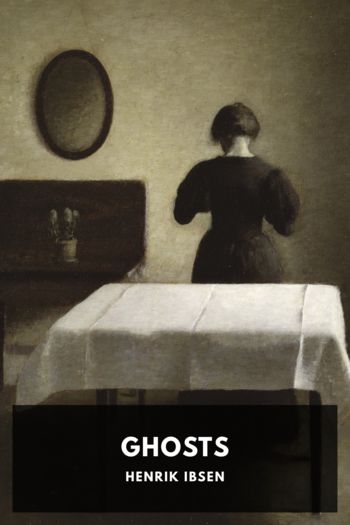Murderous by David Hickson (world of reading txt) 📗

- Author: David Hickson
Book online «Murderous by David Hickson (world of reading txt) 📗». Author David Hickson
“This plane can handle weather like this?” asked Fehrson doubtfully.
“We got here in one piece,” said Khanyi in a voice that she had probably intended to sound soothing, but her jaw was tight and teeth gritted.
“That was before the hurricane hit,” said Fehrson, and he gave his seatbelt another check.
“It’s just a bit of rain, Father,” said Khanyi. “We’ll be okay in this weather?” she called to the pilot. He turned to us and gave a thumbs up sign, then laughed, which seemed inappropriate and not particularly comforting.
We sat at the end of the runway, and through the side windows watched the hangar disappear behind a curtain of rain. Our pilot spoke into his headset, flashed his landing lights and kept his foot on the brakes, the throttle pressed forward so that the plane buzzed and vibrated like a trapped fly.
“Why are we not moving?” asked Fehrson.
“Short strip,” I said, and before Fehrson could say anything further the pilot released the brakes and we were treated to the full force of the twin engines at maximum throttle.
The field was not smooth. I could see why the pilot wanted to lift up as soon as possible. There were molehills, and craters that were just the right size to trap the wheels of the Beechcraft, and we jostled and bumped over them as the plane picked up speed, then suddenly Khanyi and I were tilted forward towards Fehrson, the drumming of the wheels stopped and the ground dropped away.
“I’ll have a whisky,” said Fehrson.
“The liquor cabinet is locked,” said Khanyi.
“Give it a try, will you, Ben?” said Fehrson. “There’s a good lad.”
It wasn’t locked.
“It’s less than an hour, Father,” said Khanyi.
“Better make it a double then,” said Fehrson, and he checked his seatbelt as the clouds tossed us about.
“Who was it?” I said as we broke free of the cloud and I realised why our pilot had kept his sunglasses on. Fehrson winced, blinked in a confused way, and then looked at Khanyi expectantly as if he also wanted to know the answer to my question.
“Who was what?” she asked.
“Who did you have in that church?”
“Have in the church?” said Khanyi, but she glanced at Fehrson and I knew I was right.
“Your pretty pictures of hyenas are not the reason you dragged me out of bed at the crack of dawn. You have teams of people on the payroll who could figure this out for you, but instead you chartered a commercial plane, dragged me around like a sightseeing tourist and now you’re going to spin a yarn about how I’m the only one who can help. As someone who hasn’t been on your payroll for over a year, I find it a little odd. It’s been a lovely reunion. But shall we all stop pretending? I’m guessing you had someone in that church. Who was it?”
Khanyi shifted in her seat, and Fehrson took a sip of his whisky, discovered that the glass was empty and glared at it accusingly. Khanyi broke the silence.
“It was Dirk,” she said. “Dirk Fourie.”
I remembered Dirk. A young and enthusiastic recruit who had decided the key to his future was to make tea for the senior staff every morning. He had befriended Belinda, the spherical matriarch of the Department’s kitchen, and had contributed his own special blend of herbal tea. Every morning he had wasted at least an hour of the government’s time brewing the stuff and then delivering it with a big smile and evangelical positivity. When I had ‘come aboard’ as Fehrson liked to say, I had not responded well to Dirk’s efforts to bring his cup of herbal Rooibos into my poky office with its stench from the sewerage pipes in the internal courtyard. But Dirk’s persistence, his good humour and thick-skinned resilience to my rebuttals finally won through when he realised a short black coffee a little later in the morning was more my thing. He was the kind of irritating colleague who would suggest team-building activities for the weekends and print out trite quotes to stick up on the wall to make us all feel more positive about each other. I spent a good deal of my time trying to drum the foolish notion that he wanted a ‘piece of the action’ out of him. He called me old and cynical and laughed like a donkey, and I called him young and stupid, which he was.
“You gave Dirk an active mission? Not controlling someone, but going in there himself? Field work?”
“He was uniquely suited to it,” said Fehrson. “And it was not ‘field work’ in the way you would have it, Ben. You have a tendency to exaggerate these things. You know you do; it is what those special forces did to you. Old school friend of his, rekindle an old friendship, that is all it was.”
“The old school friend was also in the church?”
Khanyi opened her buff folder and paged through her photos. She found a printed list of names and placed it on the table like she was playing a trump card.
“He was not,” she said finally, as if she had only just discovered this fact.
“I will have another one of those, if I may, young Ben,” said Fehrson, whose familiar English gentleman mantle was returning the further we travelled from the town of Minhoop.
I poured Fehrson another generous measure under Khanyi’s disapproving eye.
“Dirk died in the church, but his old school friend didn’t? But Dirk was there because of the old school friend?”
“Ostensibly,” said Khanyi. “They’d been getting reacquainted over the past several months. It wasn’t mission critical stuff. Dirk was





Comments (0)